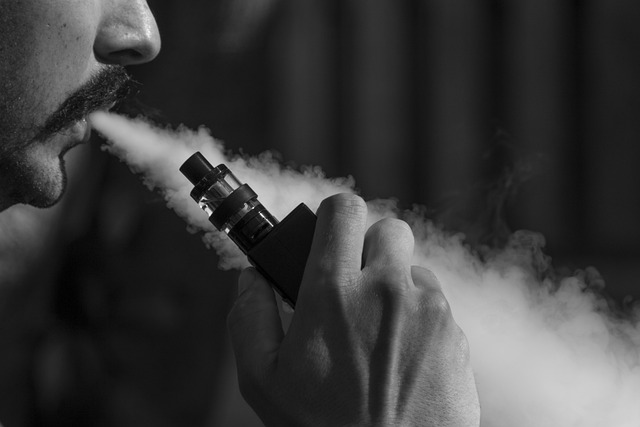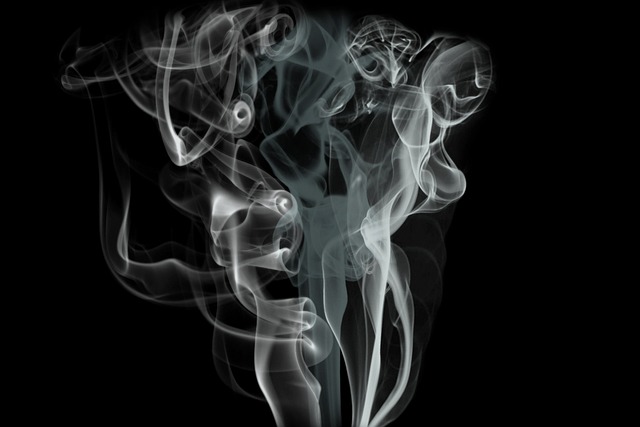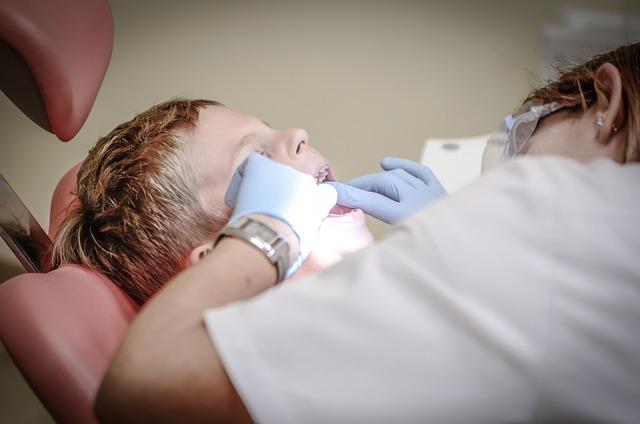Can I Vape After Getting My Wisdom Teeth Taken Out? Facts
Wisdom teeth extraction is a common dental procedure that many individuals undergo at some point in their lives. As the popularity of vaping continues to soar, it’s only natural to wonder if indulging in this habit is permissible after having those pesky molars removed. If you find yourself pondering this question, you’ve come to the right place. In this article, we will shed light on the topic and provide you with the facts you need to make an informed decision. So, let’s delve into the world of wisdom teeth extraction and vaping to uncover the truth once and for all.
1. Post-Extraction Care: A Comprehensive Guide to Vaping after Wisdom Teeth Removal
After undergoing wisdom teeth extraction, it’s crucial to follow proper care guidelines to ensure a smooth recovery. If you are a vaping enthusiast, it’s essential to be aware of the precautions and steps to take when resuming your vaping routine. Here is a comprehensive guide to help you navigate through vaping after wisdom teeth removal:
1. Wait for the right time: While it may be tempting to resume vaping immediately after your surgery, it’s vital to exercise patience. Give your mouth ample time to heal before reintroducing your vape device. The extraction site needs time to close and the blood clot to form, so it’s recommended to wait at least 48 hours before vaping.
2. Choose the right e-liquid: Opt for a softer e-liquid to minimize the risk of irritation and discomfort. Avoid highly acidic or spicy flavors during the initial phase of your recovery, as they may cause stinging sensations or inflammation. Look for e-liquids with a higher VG (vegetable glycerin) ratio, as they tend to be smoother and less likely to irritate your healing gums.

2. Understanding the Healing Process: How Your Body Recovers after Wisdom Teeth Extraction
After undergoing a wisdom teeth extraction, it is important to understand the healing process to ensure a smooth recovery. Your body has an incredible ability to heal itself, and knowing what to expect can help ease any concerns or uncertainties you may have.
Here are some key points to understand about the healing process following wisdom teeth extraction:
- Bleeding: It is normal to experience some bleeding immediately after the procedure. Gently biting down on a gauze pad placed over the extraction site can help control the bleeding. Make sure to change the gauze as directed by your dentist or oral surgeon.
- Swelling: Swelling is a common side effect, typically peaking within the first 48 hours. Applying an ice pack to the affected area, in 20-minute intervals, can help reduce swelling. After the first 48 hours, switching to a warm compress can aid in the healing process.
- Pain management: Discomfort or pain is normal after wisdom teeth extraction. Your oral surgeon may prescribe pain medication or recommend over-the-counter options. Be sure to follow the instructions provided and take any prescribed medication as directed.
- Oral hygiene: Maintaining good oral hygiene is crucial during the healing process. Gently rinse your mouth with warm saltwater a few times a day, starting 24 hours after the procedure. Brush your teeth as usual, being careful to avoid the extraction site.
Remember, everyone’s healing process is unique, and it is essential to follow your dentist’s or oral surgeon’s instructions for a successful recovery. If you have any concerns or unusual symptoms, do not hesitate to reach out to your dental professional for guidance.

3. The Impact of Vaping on Oral Health: What You Need to Know
Vaping has gained significant popularity in recent years, but it’s important to understand the potential impact it can have on your oral health. Here are some key points you need to know:
1. Dry mouth: Vaping can cause dry mouth, which reduces saliva production. Saliva plays a crucial role in maintaining oral health by neutralizing acids and washing away bacteria. When saliva levels decrease, it can lead to an increased risk of tooth decay, gum disease, and bad breath.
2. Increased bacteria: Vaping devices can harbor harmful bacteria, including nicotine-resistant strains. These bacteria can contribute to the development of oral infections, such as gum disease. Additionally, the heat from vaping can create an ideal environment for bacteria growth, further exacerbating the risk.
3. Nicotine effects: Many vaping products contain nicotine, which can have detrimental effects on your oral health. Nicotine restricts blood flow, compromising the health of gum tissue and increasing the risk of gum disease. It can also contribute to teeth grinding, jaw clenching, and a higher likelihood of developing oral sores.
It’s essential to be aware of the potential impact of vaping on your oral health. Regular dental check-ups and maintaining a good oral hygiene routine can help mitigate some of these risks. If you’re a vaper, it’s crucial to discuss your habits with your dentist and seek their guidance on how to best protect your oral health.

4. Evaluating the Risks: Can Vaping Delay or Complicate Wisdom Teeth Extraction Recovery?
Wisdom teeth extraction is a common dental procedure that many individuals undergo to alleviate pain or prevent future complications. However, as vaping continues to gain popularity, it is essential to evaluate the potential risks it may pose to the recovery process after wisdom teeth extraction.
1. Increased Risk of Dry Socket: Dry socket, or alveolar osteitis, is a painful condition that can occur after a tooth extraction when the blood clot that forms in the socket is dislodged or dissolves prematurely. Vaping, like smoking, introduces heat and chemicals that can impede the healing process and increase the risk of developing dry socket. It is crucial to avoid vaping for a period of time specified by your dentist or oral surgeon to promote proper healing and reduce the likelihood of complications.
2. Slower Healing and Higher Infection Risk: Vaping involves inhaling aerosolized substances, including nicotine and other chemicals. These substances can inhibit the body’s natural healing abilities, potentially delaying the recovery process after wisdom teeth extraction. Furthermore, vaping compromises the immune system, making individuals more susceptible to infections. To ensure a smooth and uncomplicated recovery, it is advisable to refrain from vaping during the healing period and follow your dentist’s post-operative instructions diligently.

5. Expert Advice: Dentists’ Perspectives on Vaping after Wisdom Teeth Removal
In this section, we will provide you with expert advice from dentists regarding the topic of vaping after wisdom teeth removal. It is important to note that every individual’s situation may vary, so it is crucial to consult with your dentist for personalized advice. However, here are some general perspectives from dentists:
1. Avoid vaping immediately after surgery: Dentists generally recommend refraining from vaping for a few days after wisdom teeth removal. The reason behind this recommendation is to allow the extraction sites to heal properly without any potential complications that vaping may introduce.
2. Be cautious with nicotine-containing e-liquids: Nicotine can have negative effects on oral health, including delayed healing and increased risk of dry socket. Dentists advise patients to avoid using e-liquids that contain nicotine during the recovery period. Nicotine-free alternatives may be a safer option.

6. Alternatives to Vaping: Exploring Safer Options for Oral Health during Recovery
Vaping has gained popularity in recent years, but it’s important to consider other alternatives that can promote better oral health during recovery. Here are some safer options to explore:
- Nicotine patches or gum: These are excellent alternatives to vaping as they provide a controlled release of nicotine without the harmful effects of inhaling smoke or vapor.
- Herbal remedies: Many herbal remedies can help reduce cravings and promote oral health. For example, chewing on licorice root can provide a similar sensation to vaping without the negative impacts on oral health.
- Aromatherapy: Using essential oils or herbal vaporizers can provide a relaxing and enjoyable experience, helping to distract from cravings and promote a healthy recovery.
It’s important to consult with a healthcare professional to determine which alternative is best for you. They can provide personalized recommendations based on your specific needs and preferences. Remember, the goal is to find a safer option that will support your oral health during recovery.
7. Final Verdict: Making an Informed Decision about Vaping after Wisdom Teeth Extraction
After considering all the factors and information provided, it is crucial to make an informed decision about vaping following wisdom teeth extraction. While the decision ultimately rests with the individual, it is essential to be aware of the potential risks and complications that can arise from vaping during the recovery process. Here are a few key points to consider:
- Delayed Healing: Vaping introduces chemicals and heat to the mouth, which can impair the healing process. The suction created while vaping can dislodge blood clots, leading to a painful condition known as dry socket.
- Infection Risk: Wisdom teeth extractions create open wounds in the mouth, making it more susceptible to infections. Vaping introduces bacteria and foreign substances that can increase the risk of infection and prolong the healing time.
- Nicotine Addiction: Many vaping products contain nicotine, an addictive substance that can hinder the healing process and complicate recovery. Nicotine restricts blood flow and can interfere with the body’s ability to repair and regenerate tissues.
Considering these potential risks, it is advisable to abstain from vaping for a significant period after wisdom teeth extraction. It is crucial to follow the guidance and recommendations provided by your dentist or oral surgeon to ensure a smooth and successful recovery. By prioritizing your oral health and allowing your mouth to heal properly, you can minimize the chances of complications and facilitate a faster recovery process.
Frequently Asked Questions
Q: Can I vape after getting my wisdom teeth taken out?
A: Yes, you can vape after getting your wisdom teeth taken out, but it is important to follow certain precautions to ensure proper healing.
Q: Are there any risks associated with vaping after wisdom teeth removal?
A: While vaping itself may not pose direct risks, it can still affect the healing process if not done properly. It is essential to be cautious and take necessary measures to promote a healthy recovery.
Q: What precautions should I take before vaping post-wisdom teeth removal?
A: First and foremost, it is crucial to consult your dentist or oral surgeon before resuming vaping. They will provide personalized advice based on your specific case. Additionally, ensure that you have completed the initial healing period and have no complications such as dry socket.
Q: Can vaping cause dry socket after wisdom teeth removal?
A: Vaping alone may not directly cause dry socket, but the suction action used while inhaling could potentially dislodge the blood clot, leading to this painful condition. Therefore, it is advisable to avoid vaping during the initial healing phase.
Q: How long should I wait before vaping after wisdom teeth extraction?
A: The recommended waiting period before resuming vaping varies depending on the individual case. Generally, it is advisable to wait at least 48 to 72 hours to allow for initial healing and reduce the risk of complications. However, consulting your dentist or oral surgeon is essential to ensure proper timing.
Q: What vaping techniques should I use to minimize risks after wisdom teeth removal?
A: To minimize potential risks associated with vaping after wisdom teeth removal, consider modifying your technique. Instead of drawing the vapor directly into your mouth with force, try inhaling more gently or using a device with lower airflow. This can help reduce the chances of dislodging the blood clot or causing additional trauma.
Q: Are there any specific e-liquids or flavors I should avoid after wisdom teeth removal?
A: While there are no specific e-liquids or flavors to avoid, it is recommended to choose options that are less harsh or irritating to the healing tissues. Opt for e-liquids with lower nicotine concentrations and avoid overly hot or acidic flavors that may cause discomfort or inflammation.
Q: Are there any alternative options to vaping after wisdom teeth removal?
A: If you are concerned about potential risks or discomfort associated with vaping after wisdom teeth removal, alternative options such as nicotine patches or gum may be worth considering. However, it is crucial to consult your dentist or oral surgeon for guidance on the most suitable alternatives for your specific situation.
Q: What should I do if I experience any discomfort or complications while vaping post-wisdom teeth removal?
A: If you experience any discomfort, pain, swelling, or complications while vaping after wisdom teeth removal, it is important to immediately stop and seek professional dental advice. Your dentist or oral surgeon will be able to assess the situation, provide guidance, and address any potential issues that may have arisen from vaping.
Closing Remarks
In conclusion, it is important to prioritize your oral health and recovery after getting your wisdom teeth removed. While vaping may seem like a convenient alternative to smoking during this time, it is best to err on the side of caution and avoid it altogether. Vaping can hinder the healing process, increase the risk of complications, and potentially introduce harmful substances to your sensitive gums and extraction sites. The negative impact on your oral health outweighs any perceived benefits. It is advisable to consult with your dentist or oral surgeon for proper guidance and follow their recommendations for a smooth and successful recovery. Remember, taking proper care of your oral health post-surgery is key to long-term well-being.






